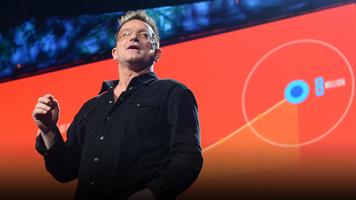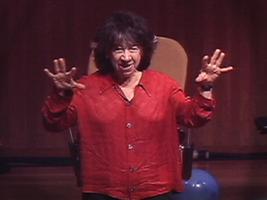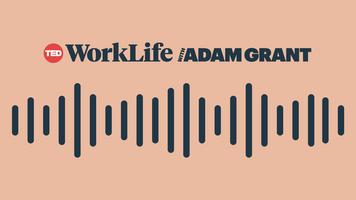Michael Anti: Behind the Great Firewall of China
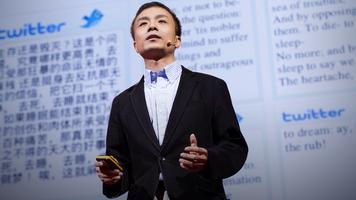
Michael Anti (aka Jing Zhao) has been blogging from China for 12 years. Despite the control the central government has over the Internet -- "All the servers are in Beijing" -- he says that hundreds of millions of microbloggers are in fact creating the first national public sphere in the country's history, and shifting the balance of power in une...
Michael Vazquez and Raye Ploeger: Can humans be trusted with control over genetics?

Andre and Leslie are a deaf couple who have decided to have a child, and they’re considering using a process to ensure deafness in their child. As deaf parents, they feel they could provide better guidance to a child that would share their lived experience and grow up immersed in deaf culture. But is this genetic intervention ethical? Michael Va...
Jon Youshaei and Michelle Weise: How do you prepare for jobs that don't exist yet? A work expert and a YouTuber answer
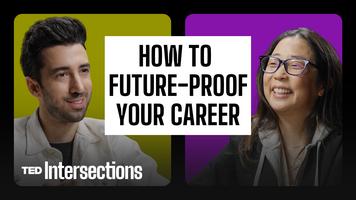
Video creator Jon Youshaei and workplace expert Michelle Weise team up to crack the code on how to thrive through career chaos. They discuss how technological change is upending traditional career paths, explore the art of making your skills stand out and offer essential advice for young people entering the workforce. (This conversation is part ...
Sarah Stroud and Michael Vazquez: This could save lives— but are you willing to do it?

Your government has introduced a plan to address record-breaking rates of traffic tickets and deadly hovercar accidents. They propose assigning “driver credit scores” to every citizen, but would need to install cameras and microphones in every vehicle. While it would make the roads safer, is this undeniable benefit worth the cost to drivers’ pri...
Michael Vazquez and Will Kanwischer: Ethical dilemma: Should knowledge be free?
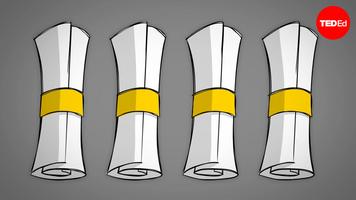
In the city of Ockham, spellcasters invent incantations and publish them in scrolls that others can purchase. Unfortunately, you can’t always afford them. But one day, a friend tells you he uses an illegal duplication spell to copy scrolls. So, do you use his counterfeit scrolls to further your own research? Michael Vazquez and Will Kanwischer e...
Sarah Stroud and Michael Vazquez: If you had the chance to be immortal, would you take it?
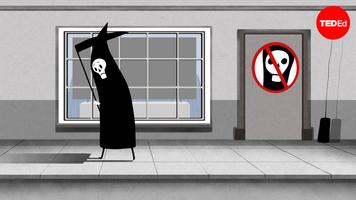
While cleaning out your uncle’s attic you find a chest with a sparkling potion. The attached tag declares drinking this liquid will make you immortal. Your body will be frozen at its current age, and these effects would be final and irreversible. The instructions are clear — the only question is, do you drink the potion? Sarah Stroud and Michael...
Michael Vazquez and Sarah Stroud: When should you break a promise?

For decades, Yvonne and Zaina have been happily married and co-leading a non-profit. One day the couple is involved in a car accident, and on her deathbed, Yvonne asks Zaina to promise her two things. First, to continue financially supporting their non-profit. And second, to never remarry. Should Zaina be beholden to these promises? Sarah Stroud...
Leah Chase and Pat Mitchell: An interview with the Queen of Creole Cuisine
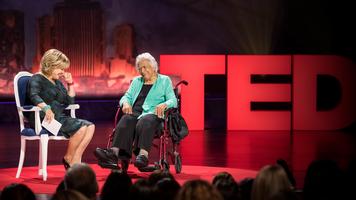
Leah Chase's New Orleans restaurant Dooky Chase changed the course of American history over gumbo and fried chicken. During the civil rights movement, it was a place where white and black people came together, where activists planned protests and where the police entered but did not disturb -- and it continues to operate in the same spirit today...
Michael Kennedy: A new way to finance renewable energy
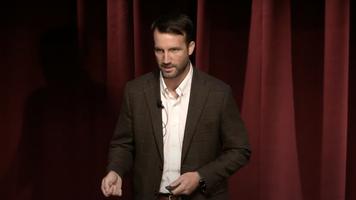
Pivoting to renewable energy is more crucial than ever before but many individuals and institutions cite an unfavorable cost benefit analysis as an obstacle to immediate adoption. Michael Kennedy argues that changing the financial structure of renewable energy to benefit communities at large instead of just the wealthy will help us address clima...
Michael Tubbs: The political power of being a good neighbor
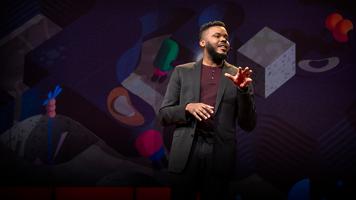
Michael Tubbs is the youngest mayor in American history to represent a city with more than 100,000 people -- and his policies are sparking national conversations. In this rousing talk, he shares how growing up amid poverty and violence in Stockton, California shaped his bold vision for change and his commitment to govern as a neighbor, not a pol...
Adeline Cuvelier and Toril Rokseth: How does the Nobel Peace Prize work?
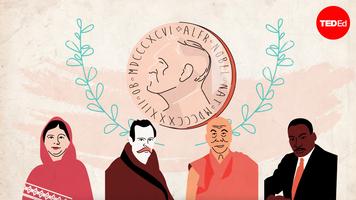
Among the top prestigious awards in the world, the Nobel Peace Prize has honored some of the most celebrated and revered international figures and organizations in history. But how does the nomination process work? And who exactly is eligible? Adeline Cuvelier and Toril Rokseth detail the specifics of the Nobel Peace Prize. [Directed by Michael ...
Eduardo Sáenz de Cabezón: Math is forever
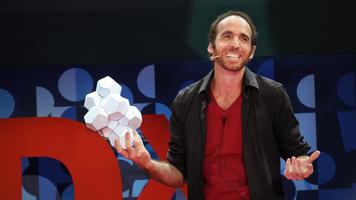
With humor and charm, mathematician Eduardo Sáenz de Cabezón answers a question that's wracked the brains of bored students the world over: What is math for? He shows the beauty of math as the backbone of science — and shows that theorems, not diamonds, are forever. In Spanish, with English subtitles.
Patrick Chappatte: A free world needs satire
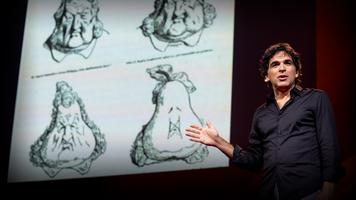
We need humor like we need the air we breathe, says editorial cartoonist Patrick Chappatte. In a talk illustrated with highlights from a career spent skewering everything from dictators and ideologues to selfies and social media mobs, Chappatte makes a resounding, often hilarious case for the necessity of satire. "Political cartoons were born wi...
Palmer Luckey: The AI arsenal that could stop World War III
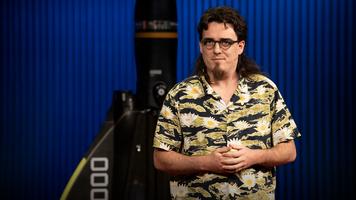
AI in warfare is no longer hypothetical; it's inevitable, says Palmer Luckey, an inventor and founder of the defense technology company Anduril Industries. He takes us inside the high-tech arms race to build AI-powered weapons, "killer robots" and autonomous fighter jets at scale — and makes the counterintuitive case for why this may be the sure...
Charles C. Mann: How will we survive when the population hits 10 billion?

By 2050, an estimated 10 billion people will live on earth. How are we going to provide everybody with basic needs while also avoiding the worst impacts of climate change? In a talk packed with wit and wisdom, science journalist Charles C. Mann breaks down the proposed solutions and finds that the answers fall into two camps -- wizards and proph...
Nora Atkinson: Why art thrives at Burning Man

Craft curator Nora Atkinson takes us on a trip to Nevada's Black Rock Desert to see the beautifully designed and participatory art of Burning Man, revealing how she discovered there what's often missing from museums: curiosity and engagement. "What is art for in our contemporary world if not this?" she asks.
Rory Stewart: Time to end the war in Afghanistan
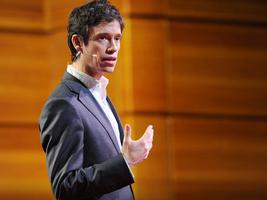
British MP Rory Stewart walked across Afghanistan after 9/11, talking with citizens and warlords alike. Now, a decade later, he asks: Why are Western and coalition forces still fighting there? He shares lessons from past military interventions that worked -- Bosnia, for instance -- and shows that humility and local expertise are the keys to succ...
Bono: The good news on poverty (Yes, there's good news)
Franklin Leonard: How I accidentally changed the way movies get made

How does Hollywood choose what stories get told on-screen? Too often, it's groupthink informed by a narrow set of ideas about what sells at the box office. As a producer, Franklin Leonard saw too many great screenplays never get made because they didn't fit the mold. So he started the Black List, an anonymous email that shared his favorite scree...
Emily Levine: A theory of everything
Handspring Puppet Co.: The genius puppetry behind War Horse

"Puppets always have to try to be alive," says Adrian Kohler of the Handspring Puppet Company, a gloriously ambitious troupe of human and wooden actors. Beginning with the tale of a hyena's subtle paw, puppeteers Kohler and Basil Jones build to the story of their latest astonishment: the wonderfully life-like Joey, the War Horse, who trots (and ...
Seth Berkley: HIV and flu -- the vaccine strategy
Dave Isay: Everyone around you has a story the world needs to hear
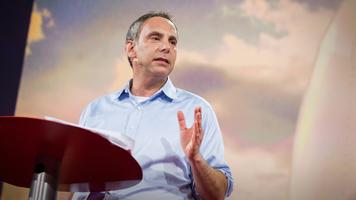
Dave Isay opened the first StoryCorps booth in New York’s Grand Central Terminal in 2003 with the intention of creating a quiet place where a person could honor someone who mattered to them by listening to their story. Since then, StoryCorps has evolved into the single largest collection of human voices ever recorded. His TED Prize wish: to grow...
WorkLife with Adam Grant: The office without a**holes
Dr. Phillip Atiba Solomon, Rashad Robinson, Dr. Bernice King, Anthony D. Romero: The path to ending systemic racism in the US

In a time of mourning and anger over the ongoing violence inflicted on Black communities by police in the US and the lack of accountability from national leadership, what is the path forward? Sharing urgent insights into this historic moment, Dr. Phillip Atiba Solomon, Rashad Robinson, Dr. Bernice King and Anthony D. Romero discuss dismantling t...
Scott Galloway: Why young people are worse off than their parents — and what to do about it
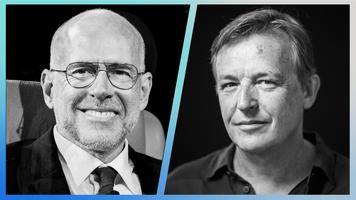
In this special conversation, NYU marketing professor Scott Galloway and head of TED Chris Anderson dive deeper into Galloway’s explosive recent TED Talk, which has been seen by millions and ignited conversations about what he calls “the great intergenerational theft,” or how older generations are stealing prosperity from the young. With razor-s...
Michelle Moll and Mariana Moll: When do we stop thinking we're beautiful?

Mariana Moll and Michelle Moll describe how photography has the power to transform the way we see ourselves, especially for women. As partners, businesswomen, and photographers, they tell how photography focused on boudoir rehearsals has helped women accept and value their bodies, starting to see beauty where defects were seen before.
Miguel Tsai, Michal Janczara, Andy Wang: Using Waste to Reduce Waste

Miguel, Michal and Andy explore how waste plastic bottles could be used in saving water in schools. Developed through an education programme, the students created an awareness of the plastic waste in our local and global communities and designed a solution to using the wasted bottles to reduce water consumption in toilet cisterns. They present a...
